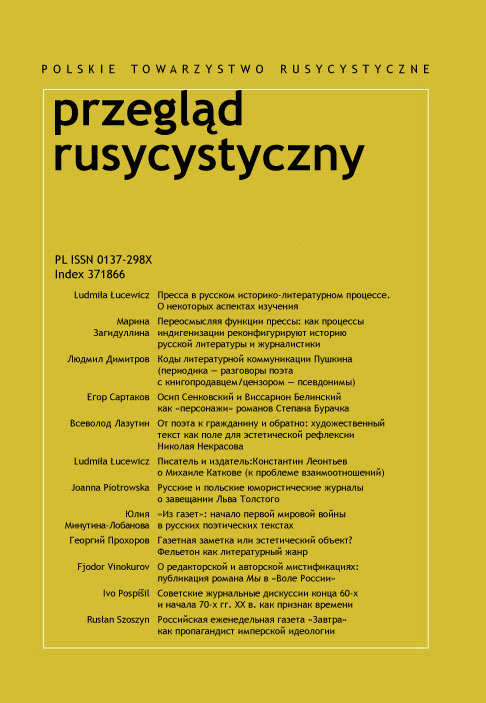Abchazja Fazila Iskandera — muzułmańska tradycja i kultura, sowieckie czasy
Fazil Iskander’s Abkhazia — Muslim tradition and culture, soviet times
Author(s): Izabela KończakSubject(s): Language and Literature Studies
Published by: Polskie Towarzystwo Rusycytyczne
Summary/Abstract: The publication provides an analysis of selected cultural phenomena characteristic for the Muslim world that are described in Fazil Iskander’s novel Sandro from Tchegem. The following customs are analysed: polygamy, ban on eating pork and drinking alcohol, the rule of clan vengeance. The author devotes much space to elaborate on rich sepulchral rites and its realisation on the Abkhazian ground. The aim of the article is to show the attitude of both the Abkhazians and Soviet authorities to the above mentioned rituals and customs as well as to indicate changes that highlanders’ ceremonial underwent under the Soviet influence. Moreover, the article contains descriptions of historical events and individuals that had a substantial impact on the course of history in Abkhazia (Wild division, the imam of Chechnya and Dagestan — Shamil, N. A. Łakoba, J.W. Stalin, W. I. Lenin).
Journal: Przegląd Rusycystyczny
- Issue Year: 2006
- Issue No: 116
- Page Range: 55-69
- Page Count: 15
- Language: Polish

